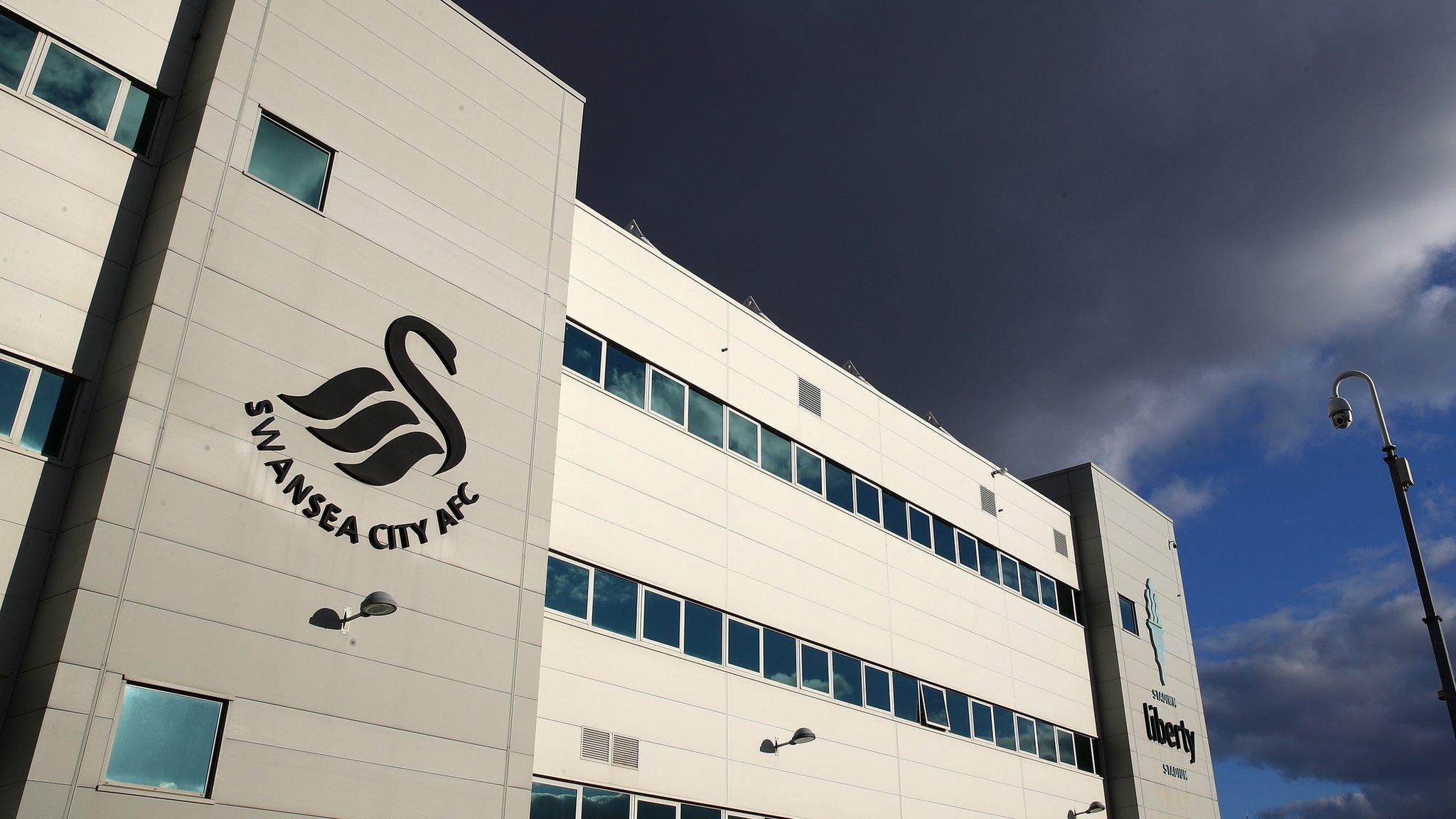Covid in Wales: Boosters paused Christmas Day and Boxing Day
- Published
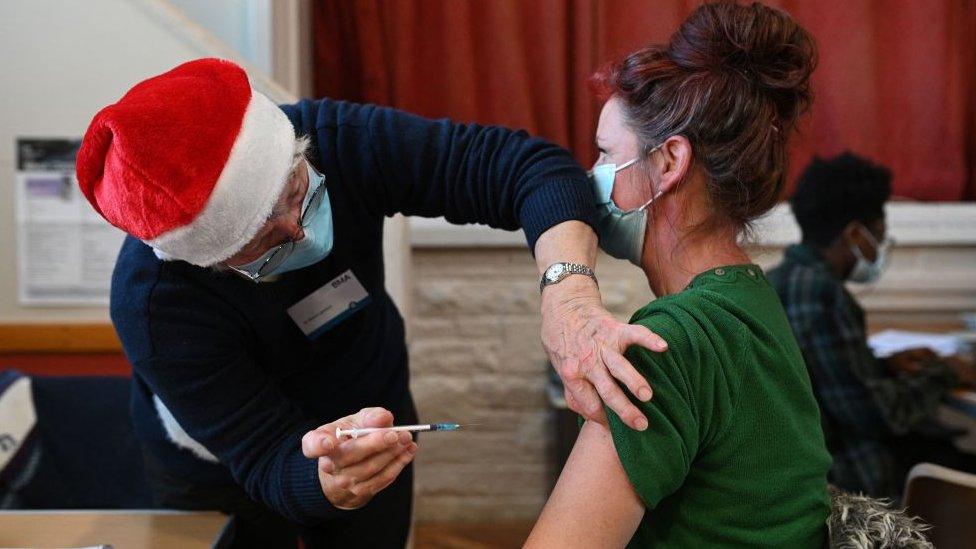
Covid booster jabs and vaccinations will be not be available in Wales on Christmas Day or 26 December.
The service will resume on Monday, but in England the roll-out continues over both days.
By then, Wales will be under tougher restrictions, as part of the plan to tackle the new Omicron variant.
But PCR test sites remain open on Christmas Day and Boxing Day for people concerned they have coronavirus.
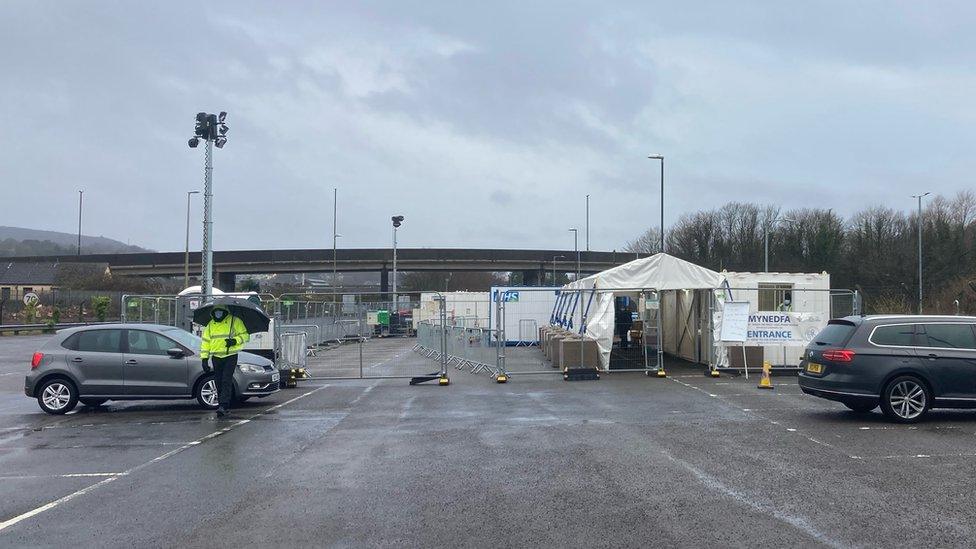
A centre in Neath is open for people to get tested on Christmas Day
The rules will be introduced despite the UK Health Security Agency saying the variant is less likely to lead to hospital care.
The Welsh government said the restrictions, due to come in on Boxing Day, 26 December, were still needed because Omicron was spreading so fast it could lead to more people needing hospital treatment.
A spokesperson for Welsh Government said health boards were anticipating take-up of vaccination appointments would be very low on Christmas Day and 26 December, which is why vaccination centres will close for that short period.
They added this also meant vaccination centre staff and volunteers, were able to have well-deserved rest over the festive period.
One in 45 people in Wales have Covid
The rolling average of hospital patients with confirmed Covid on 22 December is down 20% on two weeks ago and is at the lowest level since the end of August.
However, the number of people testing positive for Covid-19 in Wales has reached another record high.
On Friday, Public Health Wales (PHW) reported 6,755 new cases in the latest 24-hour period. One in 45 people now have the virus in Wales.
A PHW spokesperson said: "We can confirm this is the highest number of newly reported cases in a day, excepting periods when there has been a significant backlog in reporting."
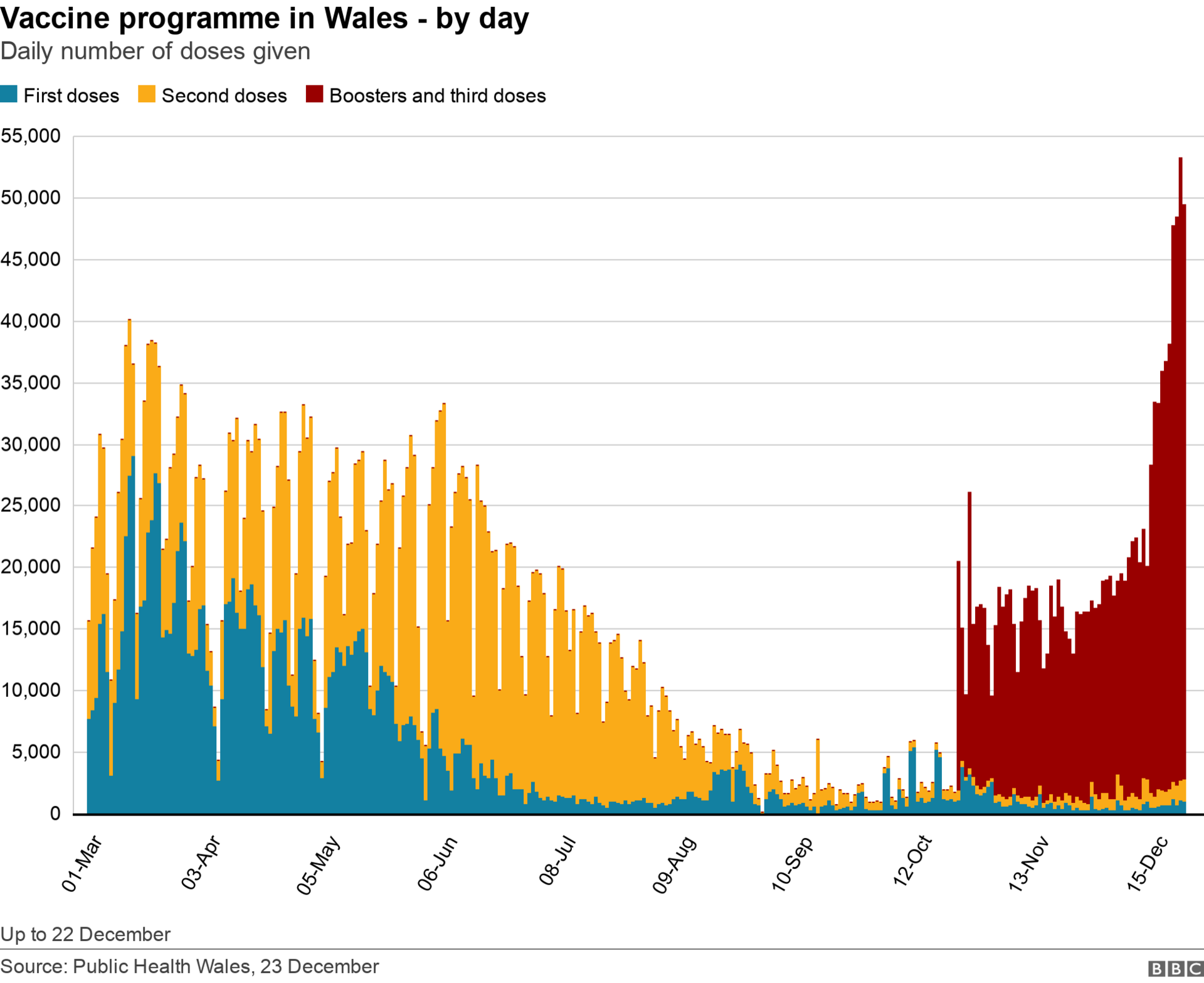
Dr Helen Alefounder, GP in Colwyn Bay, said the variant being weaker than previous ones was "fantastic news".
But she added: "As a GP it means there's a lot of virus in the community and a lot of people at home with it, leading to us being busy making life a bit tricky at the moment.
"The numbers in the community are high, thankfully they aren't very sick, that's what the new evidence shows, but it's still there and still spreading."
Allow X content?
This article contains content provided by X. We ask for your permission before anything is loaded, as they may be using cookies and other technologies. You may want to read X’s cookie policy, external and privacy policy, external before accepting. To view this content choose ‘accept and continue’.

Wales' case rate remains below other UK nations and five English regions and Delta is still the dominant variant.
On Tuesday, a record 50,524 jabs were given in a single day.
In his Christmas message, First Minister Mark Drakeford paid tribute to staff and volunteers who have helped to deliver boosters and vaccinations.
He said: "A small army of people have sacrificed their Christmas plans to work in vaccine centres around the country to make sure we all have the protection we need against this awful virus.
"Their dedication and service means so much to us all."

Omicron: What we know so far
This variant is very contagious - it spreads faster than others and can infect people even if they are fully vaccinated
Vaccines and boosters are still essential - they do a great job at protecting against severe disease that could put you in hospital
It is milder - if you catch it the risk of needing hospital treatment is up to 70% lower than with previous Covid variants - but that is largely because many of us have built up immunity from vaccines and past infections rather than changes to the virus
Even if Omicron is milder, because it is more contagious a large number of people will catch it and some will still become very ill, which puts pressure on the NHS

Aneurin Bevan University Health board said it anticipated the take up of appointments on Christmas Day and 26 December to be "incredibly low", and that staff were deserving of recuperation over the festive period.
"During the last 24 hours, we have experienced many residents not attending their allocated booster vaccination appointments," it said in a statement.
Cwm Taf Morgannwg University Health Board said its staff had gone over and above in this recent campaign and the rest will mean they are ready to go again on 27 December at 07:00 GMT.
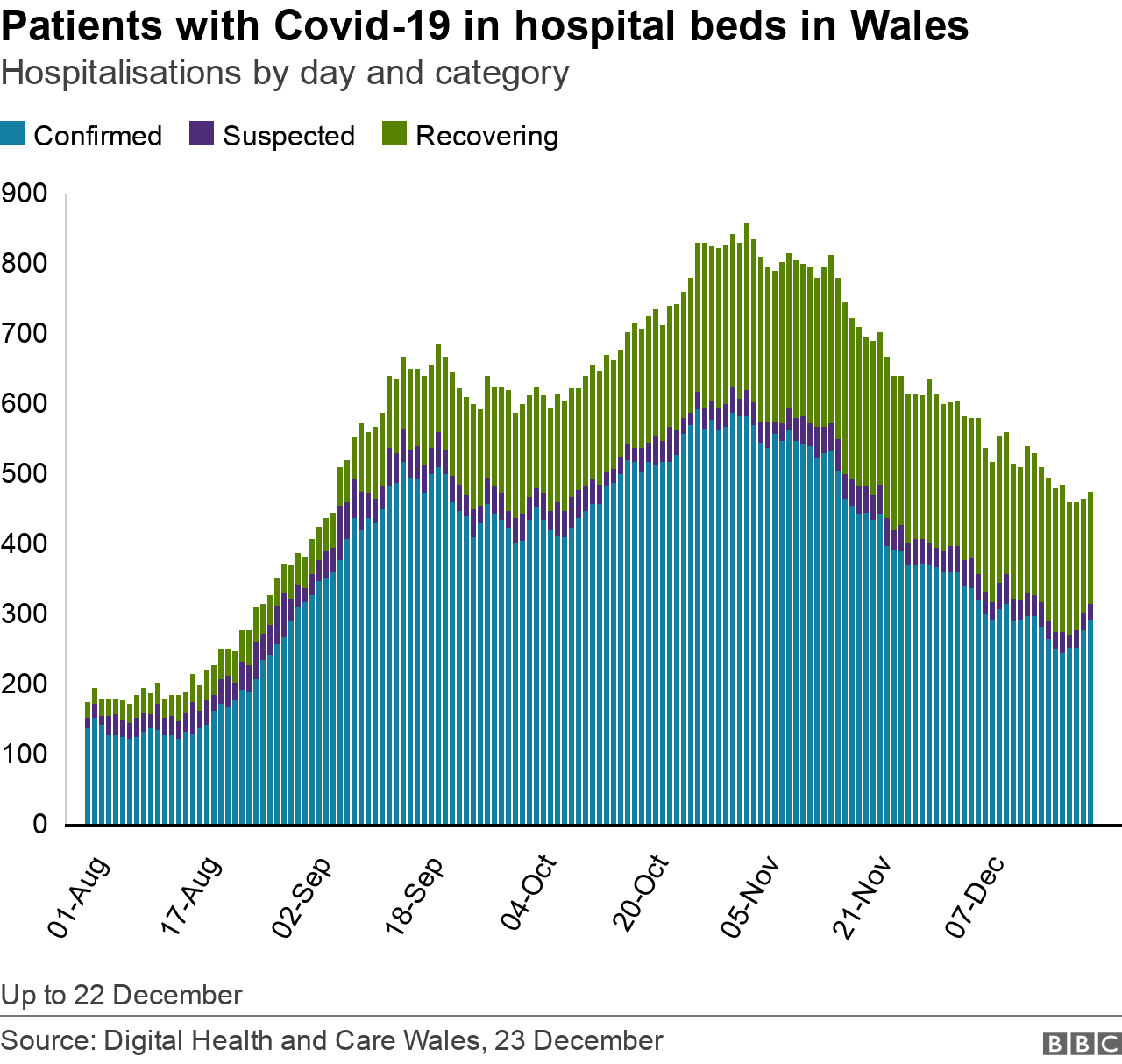
Dr Richard Stanton, a virologist at Cardiff University, said he understood the need for staff that have "been working incredibly hard for a very long time" to have a break.
"It's likely that people would rather spend Christmas Day with their families than going out to get their booster, and it may be difficult to get doctors and nurses to administer the vaccines on Christmas day," he added.
"If there aren't many people available to give the boosters, and not many people are willing to turn up and get them, there might not be much benefit from having the vaccine centres open on Christmas day."
'Staff in need of rest'
Nicky Hughes, Wales associate director of Royal College of Nursing, added that the brief closure of vaccine centres will give nursing staff a "well-deserved" break allowing them to spend time with loved ones.
A spokesperson for the British Medical Association in Wales said: "A two day pause in the vaccine roll out is not a great cause for concern, staff have been working above and beyond to accelerate the booster roll out and there is no doubt they will be in need of these rest days."
From Sunday, no more than six people will be allowed to meet in pubs, cinemas and restaurants, and two-metre social distancing rules will also return in public places.
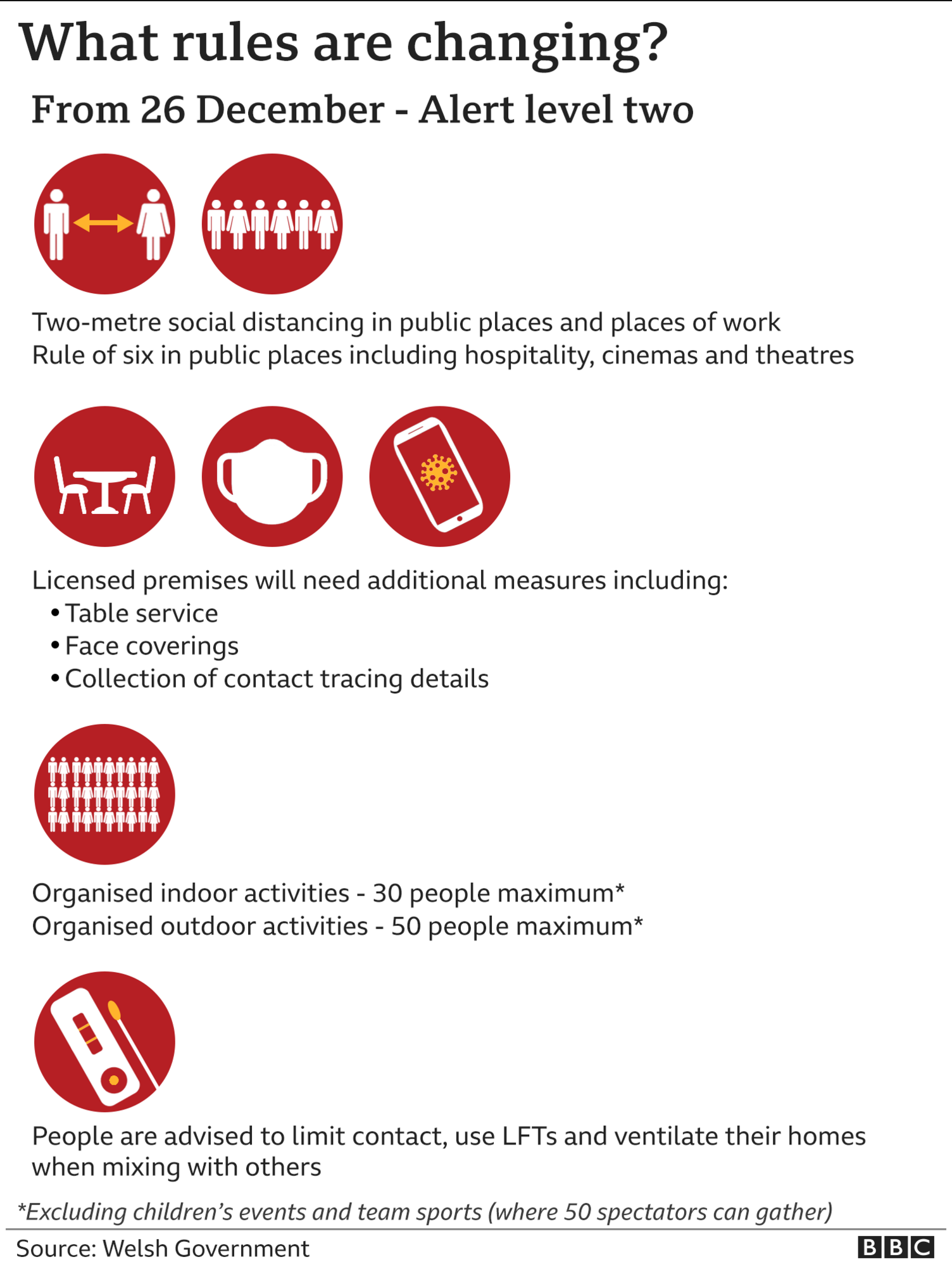

Licensed premises will have to offer table service only, face masks will have to be worn and contact tracing details collected.
Outdoor events will be limited to 50, with 30 indoors, but no restrictions were brought in for smaller meetings in private homes.
People who have tested positive for coronavirus in Wales will still have to remain in isolation for 10 days, unlike in England which has reduced it to seven.
But fully vaccinated people who are a contact of someone with coronavirus now only need to take daily tests for seven days instead of self-isolation, including for the Omicron variant.
The Welsh Conservatives have called on Labour minsters to urgently rethink a decision not to cut isolation periods in Wales.
Health spokesman Russell George, said: "Labour's decision to ignore the latest advice from the UK Health Security Agency is confusing and contradictory given the comments made by many ministers regarding their worry over sickness rates.
"Cutting the isolation period has been analysed to have little impact on the protective effect of quarantine and would significantly reduce the disruption from COVID-19 to key services such as the NHS."
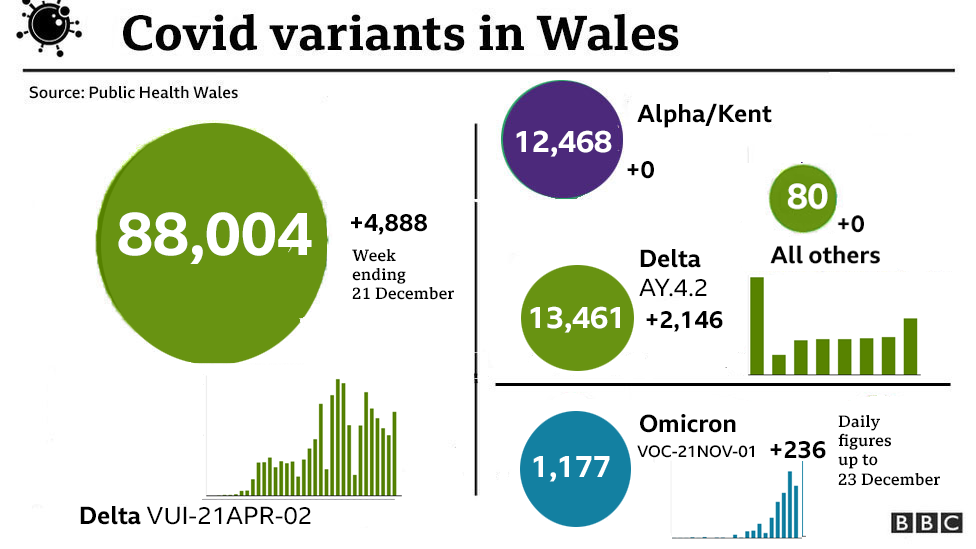
Omicron, which which was first reported in South Africa at the end of November, has led to many events being cancelled in the lead up to Christmas.
In Wales, two Stereophonics concerts at Cardiff's Principality Stadium were among the biggest casualties, while festive swims have been scrapped, as have other events along with many Christmas parties.
- Published23 December 2021
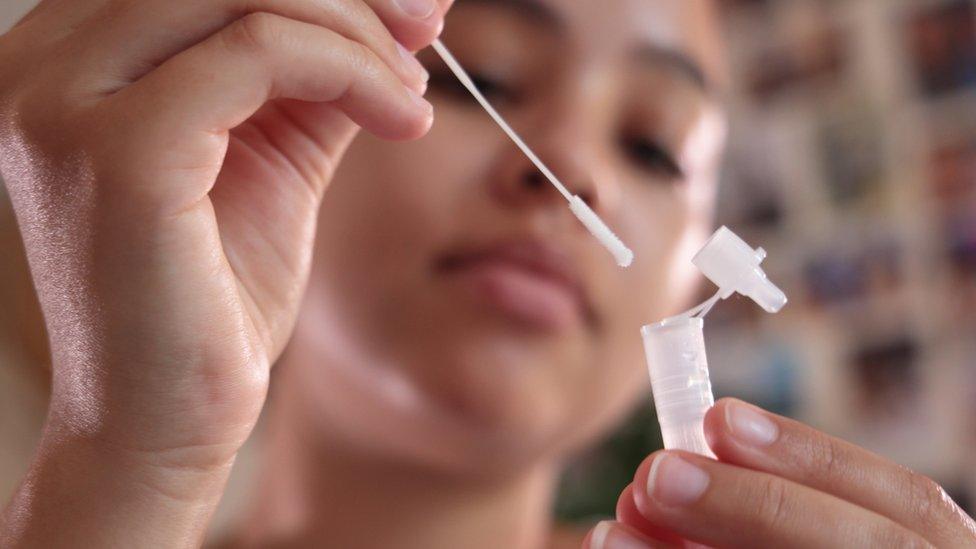
- Published22 December 2021
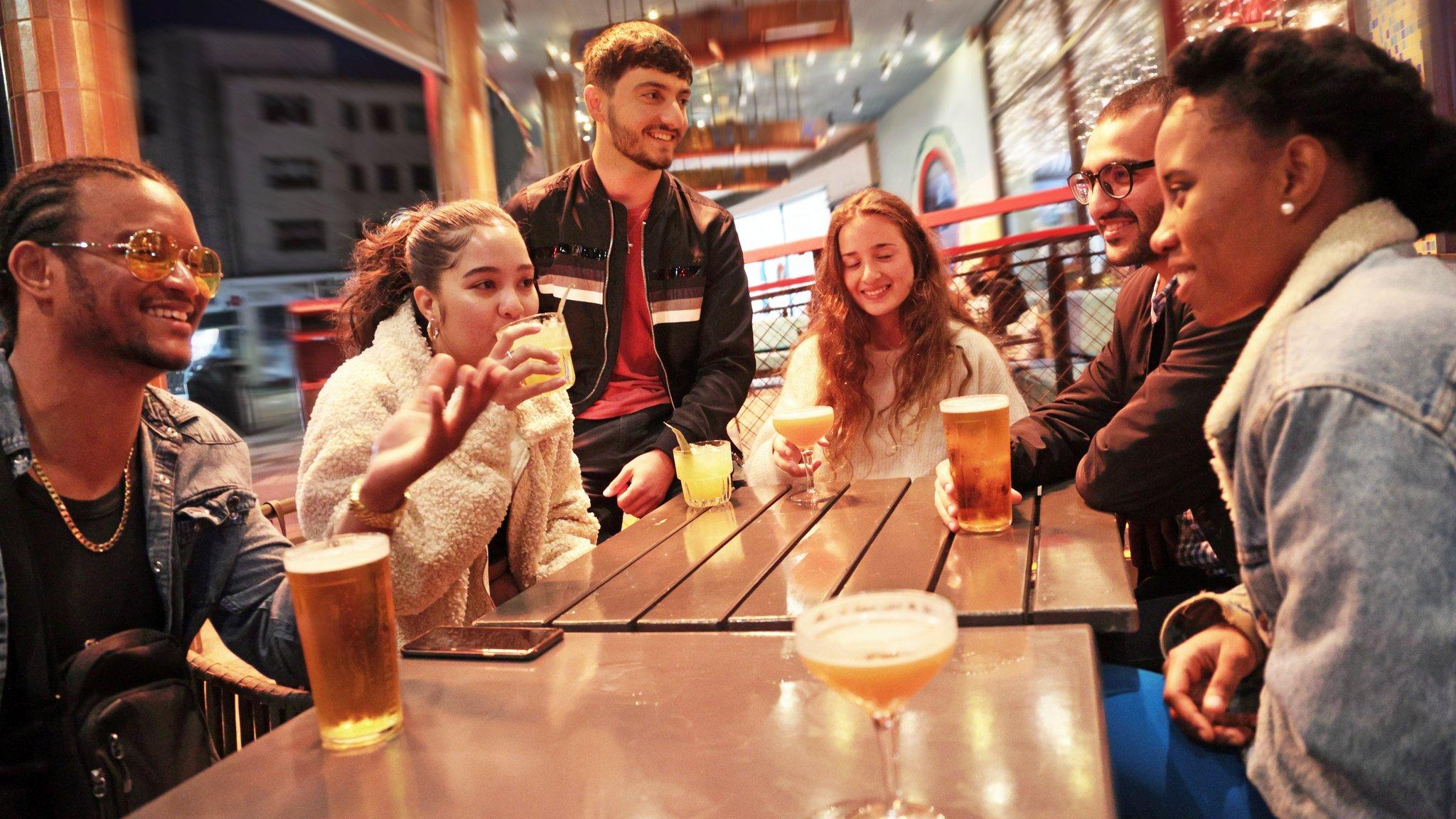
- Published22 December 2021

- Published17 December 2021

- Published27 May 2022

- Attribution
- Published26 December 2021
